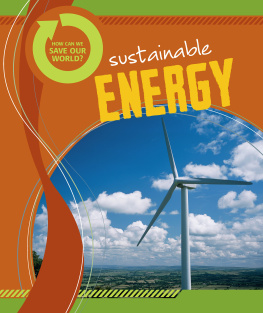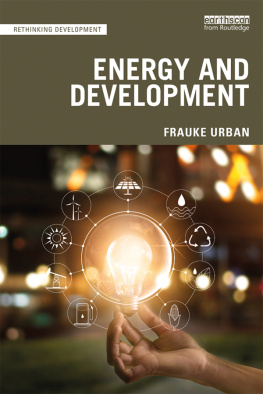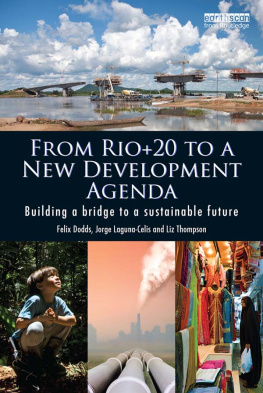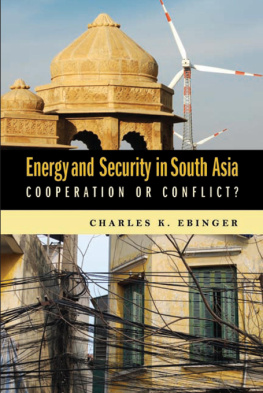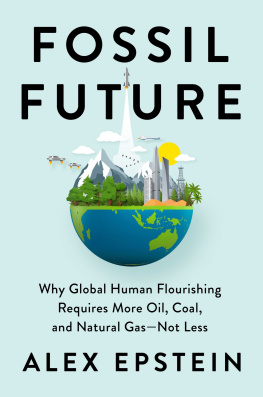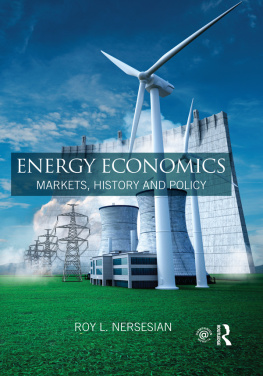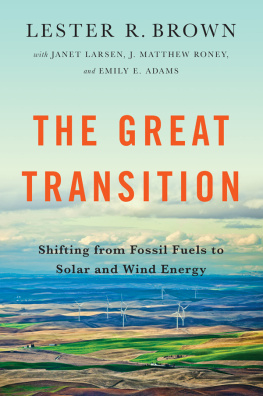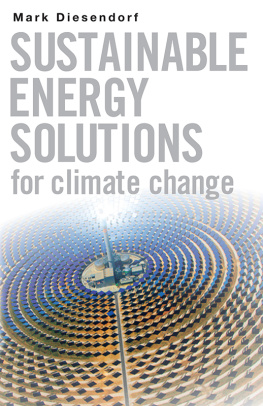Lighting the World
Transforming Our Energy Future by Bringing Electricity to Everyone
Jim Rogers
with Stephen P. Williams

St. Martins Press
New York
Begin Reading
Thank you for buying this St. Martins Press ebook.
To receive special offers, bonus content, and info on new releases and other great reads, sign up for our newsletters.

Or visit us online at us.macmillan.com/newslettersignup
For email updates on the author, click here.
The author and publisher have provided this e-book to you for your personal use only. You may not make this e-book publicly available in any way. Copyright infringement is against the law. If you believe the copy of this e-book you are reading infringes on the authors copyright, please notify the publisher at: us.macmillanusa.com/piracy .
Dedicated to my grandchildren:
Alex, Emma, Will, Sara, Teddy, Kate, Liza, and Maggie
Prologue
My interest in the lack of access to electricity began with a chance meeting in a remote Kenyan village. I came across a young man who was holding a cell phone in the middle of nowhere, with not a power line in sight.
How do you charge that thing? I asked.
I walk three hours to the charging station, he said.
Wow, I thought. He walks six hours round-trip in one day to charge his cell phone. I can barely stand it when I check into a hotel and find theres not an outlet conveniently placed next to my bed.
A few months before this trip a friend had given my wife, MA, and me a small portable solar light made by a company called Little Sun. We used it often to walk our dog at night. I imagined what a difference a light like this could make in this young mans life.
Have you visited your doctor lately? Imagine if shed had no choice but to examine you by candlelight, or worse, with no light at all. Thats the scenario for one billion people around the world whose health clinics lack electricity.
Imagine attending third grade in a room entirely dependent on natural light. Or having to study at night by candlelight. Over half the primary school children in low-income countries learn like this, in rooms without power.
with no Internet. No water pumps. No bright lights to cook dinner by. Another billion or so have unreliable access.
Theres no question that electricity is the foundation for economic development, education, health, and efficient farming. It is also a key driver in helping women gain equality at home, in the community, and at work.
Years ago I read The Path to Power, the first volume of Robert Caros magnificent biography of President Lyndon Baines Johnson. One section described how the arrival of electricity in rural Texas transformed womens lives in a powerful way. This story helped define my mission as a young electricity utility CEO. I felt proud to be supplying power to millions of people, enabling them to live modern, healthier, and more productive lives. The book was another serendipitous signpost along my path to the present, where I hope to help solve the problem of energy access for the 1.2 billion people on earth who lack electricity.
Its our obligation to assist people who lack power in their quest to get ahead and take better care of their families. It is a human imperative.
A lot of powerful and influential people talk often about income equality and equal rights for women. But hardly any of them talk about electricity. This is a huge blind spot. For example, if you investigate development issues in Africa, youll read about the lack of clean cook stoves, vaccines, education, and health care, a lack that profoundly affects women and families. But you wont read much at all about the fact that electricity is the foundation for all of these basic human needs. Once people have electrical power, suddenly they are able to address many other seemingly intractable inequities.
There are fine minds working on this dilemma, all around the world. But most are working in isolation, on a small scale. Id like to go large. I believe that together, we can make access to electricity a basic human right. And then we can work together globally to make that right a reality.
Ive approached the issue as a very curious student with a relatively solid background in the interplay of the provision of electricity and government regulation. No one has yet cracked the code on how to create scalable, affordable, and sustainable access to cost-effective power. I havent found the magic bullet either, but I believe that, when we synthesize all the disparate innovations on the horizon right now, we will be well on our way. Ive come to realize that, of all the factors limiting access to electricity, sustainability is the most important. That factor includes financing, technology, ownership, the environment, and a host of other issues.
Most of the efforts to bring power to those without it in the last 20 years have involved a mix of philanthropic and profitable ventures. Theres a pretty broad consensus now, among the many people who have been working in this arena, that for-profit approaches have better long-term results. People need to pay for their power, and profit from it too with higher standards of living.
Ownership. Respect. Engagement. Desire. Ambition. Acceptance of cultural differences. All these factors play key roles in how rural villagers enable themselves to install power in their homes and businesses. For too long, Western financing and other commitments have gone to leaders of low-income countries with sophisticated or betterthat is, more Westernideas about how to improve the lives of their people. I propose that we instead try to learn from the people themselves. Villages and countries have unique characteristics that must be understood and respected by anyone who is coming in from the outside to offer advice or set up a business. In fact, the efforts of these villagers with clean energy might, in the long run, teach us how to rescue our own deteriorating infrastructure.
Of course, I wouldnt be working on this issue at all if I didnt believe that people like me, whove worked for large utilities in the high-income world, also have a lot to offer to places that lack access to electricity. I think we have the opportunity right now to help about 600 million people in a few dozen countries in Sub-Saharan Africa, about 300 million people in India, about 300 million in the rest of Asia, and millions more in Latin America and the Middle East who now live in the dark. Thats not to mention the other one billion people in the world who might have a link to a grid, but still dont have a reliable, 24/7 supply because that grid is not so good.
We do have precedent for such a project. In the 1930s and 40s, the United States electrified almost all the rural areas of the country (save for a few glaring, and inexcusable oversights, such as the Navajo lands, where tens of thousands of the descendants of Americas original inhabitants still lack access to electricity). We did this by offering government-guaranteed, low-cost money to rural electric co-ops.
Well have to do a similar thing around the world in order to bring electricity to the 1.2. Ideally, governments in the low-income world would create franchises in the rural areas with the appropriate rules and regulations. With these franchises in place, the private company that wins the right to serve an area would be able to attract the capital necessary to bring electricity to the people there.
What is missing today is the political will to create these franchise areas alongside the state-owned utilities. As of now, the state-owned enterprises dont have the capital to expand into rural areas. These franchises will let private business raise those funds. Theres enough money available in government aid programs, investment capital, and development finance to address the issue. What are missing are the intent and the political will to create these franchises side by side with the state-owned utilities.
Next page



